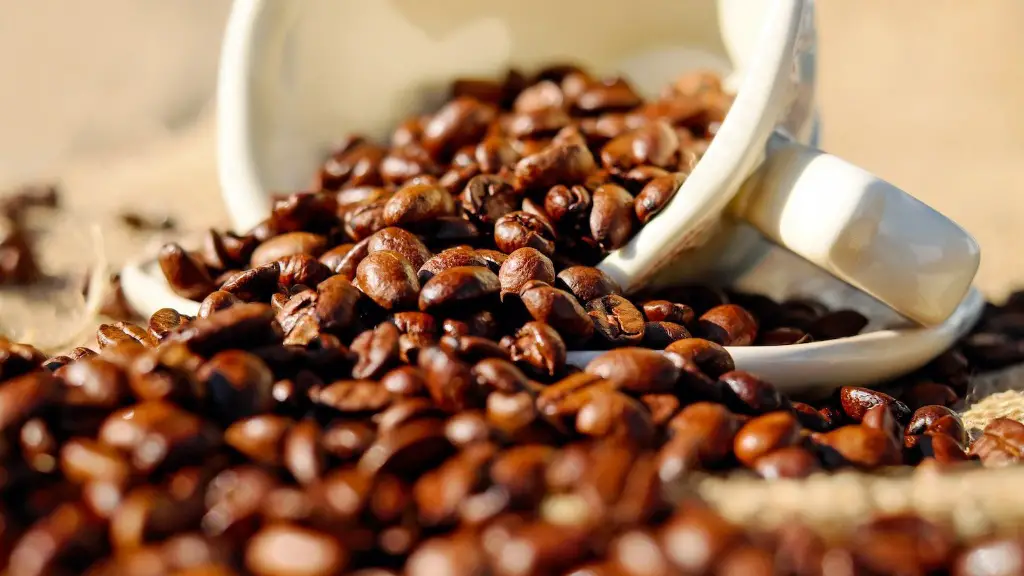Introduction
Maca is a root vegetable native to the Peruvian Andes and has gained increasing recognition for its supposed health benefits in recent years. It has historically been used to treat anemia, decrease fatigue and improve energy, fertility and stamina. Coffee has also long been a popular beverage, used to boost energy levels, provide antioxidants and improve mood. In recent years, people have been experimenting with blending the two together to create a potent combination that promises extraordinary benefits.
Nutritional Information
Maca is an excellent source of vitamins and minerals including calcium, magnesium, zinc, iron, phosphorus and potassium. It is also a rich source of essential fatty acids and essential amino acids. Coffee is rich in antioxidants, including chlorogenic acid, which has been linked to a lower risk of heart disease. It also contains caffeine, which can provide a boost of alertness and energy.
Health Benefits of the Combination
The health benefits of combining maca and coffee are said to be two-fold. First, maca is thought to boost energy levels and provide an overall sense of wellbeing, while coffee is said to improve concentration and focus. Second, maca is thought to reduce inflammation, while coffee has been found to contain powerful antioxidants.
In addition, some research suggests that maca may help to lower blood pressure and cholesterol levels, while coffee may help to improve metabolism, promote weight loss and reduce risk of type 2 diabetes. Therefore, when consumed in combination, maca and coffee may have an even greater health benefit.
Risks of Consuming Maca and Coffee Together
Despite the potential health benefits of combining maca and coffee, it is important to remember that there can also be risks associated with their consumption. For example, maca may interfere with certain medications or interact with certain conditions such as high blood pressure. Coffee can also cause anxiety, nervousness and irritability in some people, while the caffeine content may cause sleeplessness.
Therefore, it is advisable to consult a medical professional before beginning any new supplementation regimen. Additionally, it is important to monitor caffeine intake and avoid overconsuming it as it can lead to excessive stimulation and dehydration.
Practical Tips for Combining Maca and Coffee
If you would like to experiment with combining maca and coffee, there are some practical tips to bear in mind. First, it is important to purchase high-quality maca and coffee. It is also a good idea to start slowly and listen to your body – if you experience any adverse effects, reduce your intake and consult a doctor.
Second, if you are sensitive to caffeine it is a good idea to opt for decaffeinated coffee. Similarly, for those who dislike the taste of maca, there are also a variety of maca-based beverage blends available on the market.
Pros and Cons
The combination of maca and coffee has become increasingly popular in recent years, with some claiming that it can offer numerous health benefits. Although some evidence points to this being the case, it is important to remember that more research is needed.
Furthermore, while there are some potential health benefits, it is important to consider the risks and be aware of any potential interactions before trying the combination. Additionally, if caffeine makes you anxious, it is wise to avoid or at least limit your intake.
Alternative Sources of Energy
If you are looking for sources of energy and are considering combining maca and coffee, there are a number of alternatives to consider. For example, green tea is a natural source of caffeine and contains antioxidants which may help boost energy levels. Additionally, there are a number of natural supplements such as bee pollen, spirulina and ashwagandha, which may be beneficial to energy levels and overall wellbeing.
In conclusion, while there are some potential health benefits associated with combining maca and coffee, it is important to be aware of the potential risks. Additionally, if you are looking for natural sources of energy, there are a variety of alternatives to consider such as green tea, bee pollen and spirulina.



